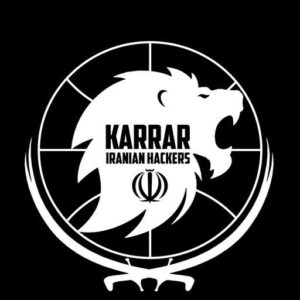
The Role of Intelligence in Modern Warfare
In today’s complex and rapidly evolving battlefields, modern warfare has taken on new dimensions. No longer confined to traditional confrontations between armies, it now involves a range of sophisticated technologies and strategies that depend heavily on intelligence. Intelligence, in this context, refers to the systematic collection, analysis, and use of information to inform military decisions. In modern conflicts, intelligence is not merely a supporting function—it is often the decisive factor that determines success or failure. Understanding its role in modern warfare is essential for appreciating how nations secure their interests and maintain global stability.
The Evolution of Intelligence in Warfare
Historically, intelligence has played a critical role in warfare. From ancient times, when spies and scouts would provide information about enemy movements, to the Cold War era’s focus on espionage, intelligence has always been a key aspect of military strategy. However, in modern warfare, the scope and scale of intelligence gathering have expanded exponentially. Advancements in technology, such as satellites, drones, and cyber capabilities, have transformed intelligence into a highly technical and data-driven operation.
In modern conflict scenarios, intelligence agencies and military forces rely on cutting-edge tools like artificial intelligence (AI), machine learning, and big data analytics to process vast amounts of information. These technologies enable real-time decision-making, allowing for more precise targeting, better resource allocation, and more effective responses to threats. The evolution of intelligence from a purely human-centered activity to a hybrid of human and machine efforts has changed the dynamics of warfare, making information superiority a central goal.
Types of Intelligence in Modern Warfare
Intelligence in modern warfare can be categorized into several types, each with a distinct function. The most prominent categories include:
1. Human Intelligence (HUMINT)
HUMINT involves the gathering of information through interpersonal contact, such as through spies, informants, or diplomats. Despite the advancements in technology, human sources remain invaluable in modern conflicts, as they can provide insights into an enemy’s intentions, plans, and morale—data that cannot always be acquired through technological means.
2. Signals Intelligence (SIGINT)
SIGINT refers to the interception of communications and electronic signals. In modern warfare, this is a crucial method of obtaining real-time data. By monitoring enemy communications, military forces can anticipate movements, detect vulnerabilities, and gain strategic advantages. SIGINT is especially effective in detecting and disrupting enemy cyber operations, missile deployments, and battlefield logistics.
3. Geospatial Intelligence (GEOINT)
GEOINT focuses on gathering information from satellite imagery, drone reconnaissance, and geographical data. The ability to analyze terrain, infrastructure, and enemy positions has become indispensable in modern military operations. With advanced imagery and sensors, commanders can visualize battlefields, identify hidden threats, and plan their moves with great precision.
4. Cyber Intelligence
In an era where cyberattacks can cripple a nation’s defense and communication systems, cyber intelligence has become an integral part of modern military strategy. Intelligence agencies now dedicate significant resources to monitoring cyber threats, defending against hacking attempts, and infiltrating enemy networks to gather sensitive information.
5. Open Source Intelligence (OSINT)
OSINT is the collection and analysis of publicly available information from sources such as news outlets, social media, and official reports. With the rise of digital platforms, OSINT has gained prominence as a way to track enemy activity, monitor public sentiment, and predict potential threats.
The Importance of Real-Time Intelligence
One of the most defining features of modern warfare is the demand for real-time intelligence. In high-stakes military operations, decisions must often be made within minutes, or even seconds. Intelligence systems today are designed to provide instantaneous updates to commanders and decision-makers, enabling them to act swiftly and decisively.
For example, in counterterrorism operations, drone strikes are often reliant on real-time intelligence to track the location of high-value targets. Similarly, in larger-scale conflicts, real-time intelligence helps in coordinating troop movements, managing airstrikes, and avoiding civilian casualties. Without the constant flow of accurate, real-time data, modern militaries would struggle to keep up with the pace of contemporary conflicts.
Intelligence and Decision-Making
The role of intelligence in decision-making is a cornerstone of modern warfare. Intelligence not only informs military leaders of an adversary’s movements but also shapes strategic decisions regarding diplomacy, alliances, and overall national security. Intelligence assessments allow leaders to anticipate potential conflicts, prepare defenses, and engage in negotiations from a position of strength.
Moreover, intelligence serves as the basis for risk assessments, helping military planners weigh the costs and benefits of different courses of action. Whether it’s deciding when to launch a military operation or determining the best way to respond to an emerging threat, intelligence is the foundation upon which critical decisions are made.
Intelligence in the Age of Hybrid Warfare
The landscape of modern warfare is no longer confined to the battlefield. Hybrid warfare, which involves a blend of conventional military tactics, cyberattacks, propaganda, and covert operations, has introduced new challenges. Intelligence plays a crucial role in navigating this complex environment. For example, cyber intelligence is vital in detecting and responding to state-sponsored hacking attempts, while HUMINT can help in countering disinformation campaigns that aim to destabilize a region or undermine public trust.
In hybrid warfare, the line between combatants and civilians often blurs, making intelligence even more critical in distinguishing between legitimate threats and non-combatants. The ability to adapt and integrate multiple intelligence streams has become a hallmark of modern military strategy.
Intelligence and the Future of Warfare
As warfare continues to evolve, the role of intelligence will become even more pivotal. Emerging technologies such as AI-driven drones, autonomous systems, and quantum computing are poised to revolutionize how intelligence is collected and analyzed. These advancements will allow militaries to predict enemy actions with greater accuracy, enhance operational efficiency, and reduce the risks to human soldiers.
One notable exploration of these future warfare scenarios can be found in Above Scorched Skies: A Story of Modern Warfare, a novel that delves into the intersection of intelligence, technology, and global security. The narrative reflects the critical importance of intelligence in shaping the outcomes of modern conflicts and underscores how future developments will continue to push the boundaries of warfare.
Summary
Intelligence is the linchpin of modern warfare. From gathering information to shaping strategic decisions, its role cannot be overstated. As technology continues to advance, the importance of timely, accurate, and actionable intelligence will only grow. Nations that prioritize intelligence as a core element of their military strategy will have a distinct advantage in navigating the complexities of modern and future conflicts.






